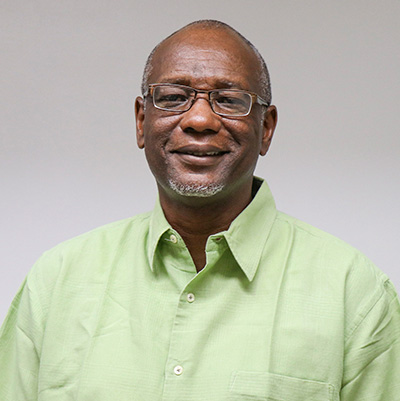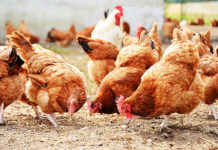Professor Baldwyn Torto, Principal Scientist and Head, Behavioural and Chemical Ecology (BCEU), at the International Centre of Insect Physiology and Ecology (icipe), Kenya, has been awarded the 2019 Agropolis Louis Malassis International Prize for Food and Agriculture, under the Outstanding Career in Agricultural Development category. Created in 2009, this highly prestigious Prize recognises exemplary achievements by scientists, while also inspiring young, promising researchers to work towards excellent science in the service of society. Specifically, the Career in Agricultural Development category is conferred to remarkable professionals in the field of agriculture and food research, innovation, capacity building, development or policy. Prof. Torto has been recognised for his outstanding contributions to the understanding of how pests and beneficial organisms in agriculture use chemistry for their ecology, and application of this knowledge for crop protection to ensure food security in Africa within the framework of ‘One Health’ (agriculture, environment and human health. The Prize also recognises Prof. Torto’s immense contribution, in collaboration with various partners, to the training of the next generation of scientists in Africa. A Ghanaian national, Prof. Torto was the first PhD student to be trained in chemical ecology (1985 –1988) by the eminent scientist, Prof. Ahmed Hassanali, under the icipe African Regional Postgraduate Programme in Insect Science (ARPPIS) programme. He had previously earned BSc and MSc degrees from the University of Ghana. Overall, Prof. Torto has served icipe for close to 24 years, interspersed with postdoctoral training at the University of Maine, Orono, USA, and at Rothamsted Research, UK; and a six-year stint as a researcher at the United States Department of Agriculture/Agricultural Research Services (USDA/ARS)– Centre for Medical, Agricultural and Veterinary Entomology, Gainesville, Florida, USA. “icipe is extremely gratified by the recognition of Prof. Torto, and we affirm his enhancement of the Centre’s mission and vision of food security, better health and holistic development in Africa and beyond. His research has impacted on the livelihoods of thousands of small-scale farmers and other end-users,” stated Director General, Dr Segenet Kelemu. She added: “Prof. Torto’s portfolio of solutions for insects is extensive, encompassing a range of crop pests, vectors that transmit diseases in people and animals, as well as useful species like the honeybee, a vital pollinator responsible for most crops we grow and food that we eat. His discoveries have had a profound impact in his area of specialisation, chemical ecology, and diverse scientific fields, while supporting Africa’s capacity and leadership in global knowledge production.” Prof. Torto noted: “I feel truly honoured, humbled and grateful that the Agropolis Foundation has selected me for this prestigious global award. I appreciate the immense support of the icipe management and leadership, tremendous contributions from students, staff, dedicated partners, and more importantly, continued cooperation of small-scale farmers leading to this award. Also, the incredible support from my family during this journey has been priceless.” Controlling stemborers Prof. Torto’s accomplishments include the identification of attractants derived from plants that have been used as lures to monitor species of wasps identified through icipe research as “natural enemies” of stemborers, one of the key constraints of cereal production in Africa. These wasps have been released in farmers’ fields across eastern and southern Africa. The technology developed through Prof. Torto’s research provides an alternative and more environmentally friendly way of keeping track of the spread and performance of the wasps. As a result, icipe and partners have been able to enhance the use of these wasps to control stemborers, thereby improving production of cereals, and livelihoods of thousands of people in the region. Fruit and vegetable pests management Together with his teams, Prof. Torto has also conducted pioneering work into the development of more efficient tools to control fruit flies species that are indigenous to Africa. For example, his studies have revealed the behaviour that enables certain fruit fly species to deposit a chemical (pheromone) to indicate fruits where they have already laid eggs, thereby pre-empting repeated egg-laying on the same fruit. Knowledge on this specific chemical, commonly known as a ‘host marking pheromone’, is useful in the control of species that exhibit such phenomena. For instance, if a product containing such host marking pheromones is sprayed onto fruits, it could deter and prevent some fruit flies from laying eggs on them. This natural chemical is currently being tested in mango growing areas in central Kenya. So important were these findings that a scientific paper reporting them was selected as the 2018 Research Article of the year by the Journal of Agricultural and Food Chemistry (Agrochemicals Division), a flagship journal of the American Chemical Society. Studies led by Prof. Torto have also provided promising leads for the development of ecofriendly strategies to control root-knot nematodes; highly destructive, soil dwelling, microscopic worms that cause up to 100% yield loss in important crops like tomato, pepper and African leafy vegetables. For example, his research has identified the chemical signals involved in the interaction between the highly damaging species southern root-knot nematodes (Meloidogyne incognita Kofoid and White (Chitwood)), and a variety of pepper plants grown in East Africa. Although previous studies have shown that roots of host plants may attract or repel nematodes, this is the first time that the mediating chemicals have been established. The findings create new opportunities for breeding peppers that are resistant to root-knot nematodes. Honeybee health Prof. Torto’s research in improving honeybee health supports the vision and the urgency, in Africa and globally, to ensure the survival of these important insects and the continuation of their vital services to mankind: pollination of agricultural crops, ecosystem services and provision of useful products like honey. His studies have contributed to the goal of mapping of bee health risk factors, while investigating mitigating strategies. His accomplishments in this area include a landmark study that revealed how the small hive beetle, a serious pest of honeybee colonies in warm climates, locates the insects. This knowledge led to the development of an odour-baited trapping system that is widely used to monitor populations of the beetle both in Africa and the United States. Further, in collaboration with global partners, Prof. Torto discovered the presence of Varroa mites in honey bee colonies in East and West Africa. Varroa mites are the most likely contributors to the colony collapse disorder (CCD), a phenomenon that has become a serious problem and a major threat to commercial beekeeping and pollination operations in Europe and USA. He has been at the forefront of research, which revealed the mechanisms of natural behavioral defense displayed by African honey bee populations against the mite. This new knowledge is essential for guiding informed decisions on the implementation of sustainable strategies to preserve African honey bee health and associated pollination and ecosystem services, without human intervention with miticides. Nurturing leadership and capacity Prof. Torto has been a leader in nurturing the next generation of globally competitive scientists in chemical ecology and pest management. In total, he has mentored 74 young scientists including: 10 postdoctoral fellows, 46 PhD students and 18 MSc students and over 50 undergraduate interns and thousands of end-users. Most of them have achieved productive careers in Africa and across the world, in industry, academia and government research institutions, while also inspiring other scientists. Prof. Torto has published extensively and given several plenary and keynote presentations at international conferences across the globe. He is a Fellow the African Academy of Sciences (AAS), Fellow of the Entomological Society of America (ESA); Councilor, International Society of Chemical Ecology (ISCE); and serves on the Editorial Boards of several reputable journals; Journal of Chemical Ecology, Proceedings of The Royal Society B: Biological Sciences (the flagship biological journal of the Royal Society, UK), Pest Management Science; International Journal of Tropical Insect Science and Journal of Agricultural and Food Chemistry. |
Home Latest News Prof. Baldwyn Torto awarded the 2019 Agropolis Louis Malassis International Prize for...








